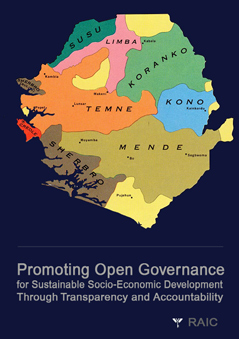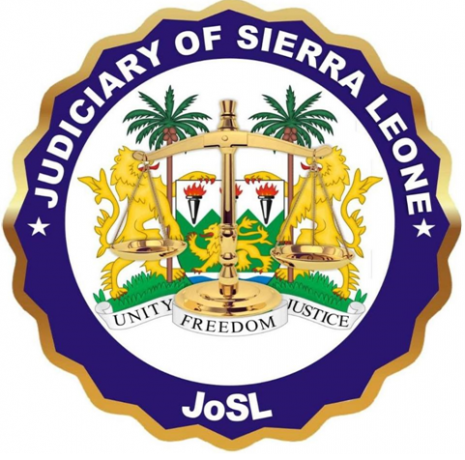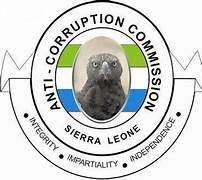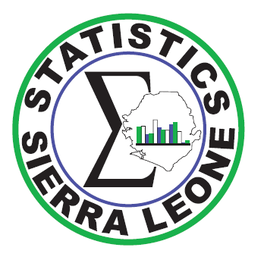By Amara Thoronka
On the distinguished invitation of UNESCO, Dr Ibrahim Seaga Shaw, the Chairman and Information Commissioner of the Right to Access Information Commission (RAIC) of Sierra Leone, graced this year’s global conference commemorating the International Day for Universal Access to Information (IDUAI 2025) in Manila, The Philippines, from 29th to 30th September, on the theme “Ensuring Access to Environmental Information in the Digital Age”.
Dr Seaga Shaw was notably selected and featured in one of the Global IDUAI Conference’s plenary panels which critically examined how legal framework can be adopted to incorporate big data, striking the right balance between openness and privacy as well as ensuring interoperability and ethical use.
Responding to plenary questions, Dr Shaw emphasized the importance of big data and open data in enhancing access to information, especially in today’s rapidly tech evolving world.
“As digital technologies rapidly advance, and taking into consideration the role they play in promoting good governance and development in general, it is crucial to leverage on these tech tools in managing data, promoting access to information and protecting personal data in consonance with national legislations and best practice frameworks,” he said.
On the critical balance between access to information and data protection, Dr Seaga Shaw noted that the two concepts are two sides of the same coin, and are both human rights and promoters of development.
“Access to information and data protection are not conflicting but complementary. It is best practice to give out information and also protect personal, or sensitive data. That is why all access to information legislations have exemptions. In other words, access to information promotes openness while data protection is a safeguard of privacy,” Dr Shaw explained. He however added that in most ATI legislations, there is also provision for public interest test to be applied in the case of conflict between openness and data protection.
From the Global IDUAI 2025 engagements, it came out clear that, in providing oversight on access to information and data protection, most countries have just one body providing oversight for both access to information and data protection while others have two or more bodies serving as oversight bodies for both concepts.
“For us in Sierra Leone, there is the Right to Access Information Act 2013. Part of the said law provides for exempt information which can be equated to data protection though not exhaustive on privacy. However, there is now a draft legislation which seeks to combine access to information and data protection in one document – the Access to Information and Data Protection Bill. Very importantly, the bill provides for the fusion of both concepts with one oversight body. This is said to be a more effective, efficient model across the world and it is good that as a country we are adopting this model,” the Sierra Leone Information Commissioner told guests from across the world.
Dr. Ibrahim Seaga Shaw shared the inspiring experience of Sierra Leone on the significance of data production and data or records management in enhancing access to information and safeguarding data, referencing capacity building interventions of his country’s [Sierra Leone] access to information oversight body in bringing government institutions to speed on information and data governance.
“In 2021, we developed a training manual to provide guidance for public authorities, particularly for officials working in records units or departments on how to manage public records. The training manual was developed because we realized that in some cases not that public authorities do not always want to provide information, but that proper records management was challenging for many of them. UNESCO provided support in helping our nation have a comprehensive modern records management code of practice and training manual.
Section 27 of the Right to Access Information Act of Sierra Leone makes it an obligation for all public authorities to have records management unit and at least one records management officer to be keeping, managing and disposing records. In our annual evaluation on access to information, we call out public authorities which do not comply with such crucial provision of our right to information law,” Dr Shaw narrated.
He shared examples of cases where public authorities in Sierra Leone could not provide requested information due to the unavailability of information, adding it was only after the intervention of the RAIC that the information requested was provided.
Dr Seaga Shaw noted that there has been an improvement in the number of records officers in public institutions due to the interventions of the Commission in engaging public institutions on the need for such personnel as required by law.
Dr Shaw’s vision goes beyond just his country. He is committed and resolved to seeing sustained developments in the African continent on both access to information and data protection.
“At the African level, through the support of UNESCO, we have secured some funding to develop a records management training manual for African oversight bodies on access to information and data protection. The hired consultants – one local and one international – have started their work and we hope that by the time they are done we will have a guiding model on records management for Africa,” Dr Seaga Shaw proudly informed the conference.
He highlighted landmark instances where the Right to Access Information Commission of Sierra Leone has fined public institutions for non-compliance with the Right to Access Information law of the country.
The Global IDUAI 2025 Conference was segmented into panels. There was the High-Level Panel which focused on the decade old Paris Agreement and evaluating the right to environmental information for a sustainable future. The First Panel was on the UN System and multilateral coordination for environmental transparency. The Second Panel was on the role of intergovernmental organizations and regional conventions in promoting access to environmental information. The Third Panel was centered on incorporating access to big data into access to information law. The Fourth Panel was on UNESCO initiatives for information on climate change. Panel Five discussed open government for environmental information and building trust through transparency. Panel Six focused on the regional perspective of access to environmental information; while Panel Seven, the final panel, conferred on civil societies’ role in promoting access to environmental information.
Panellists in all panels shared their expertise on how partnership, collaboration and legal frameworks can support greater access to environmental information while safeguarding rights and responsibilities in the digital age as that is the overarching focus of this year’s Global IDUAI.
Sierra Leone is on record to have maintained an enviably impressive performance in both regional and global access to information rankings, especially under the leadership of Dr Ibrahim Seaga Shaw as Chairman and Information Commissioner of the Right to Access Information Commission (RAIC) of Sierra Leone since 2019.
For media enquiries, contact:
Amara Thoronka
Public Information and Communications Officer
RAIC – National Secretariat
+232 88 283632 / +232 78 231949



















